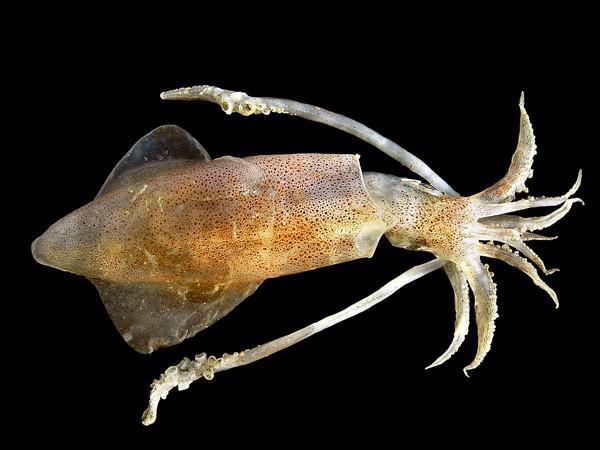Squid is a favorite food of many people and can be processed into many delicious dishes such as grilled or fried… So is it good to eat squid?
Squid is a species of mollusk with high commercial value. Squid (lat. Teuthida) – belongs to the order cephalopods, unlike octopuses, they have ten tentacles.
Squid is considered an excellent swimmer because of its ability to swim great distances. They move with the help of a type of jet engine that is a small hole in the body responsible for creating thrust to help them move.

Nutritional composition of squid
On average, 100 grams of squid contains the following nutrients:
– Calories: 104
– Protein: 18 grams
– Fat: 2 grams
– Carbohydrates: 3 grams
In addition, squid is also a source of several vitamins and minerals such as:
– Vitamin C
– Iron
– Calcium
The health benefits of squid are often related to its high protein content. Other benefits are tied to its unsaturated fat content, known as omega 3 fatty acids.
Is eating squid good? Effect of ink
– Support a healthy pregnancy: Many women who are breastfeeding are concerned that eating fishy foods like squid will affect their milk and their health. However, there are also some people who believe that eating squid after giving birth will add more nutrition. So is it good to eat squid, is it suitable for women after giving birth? The US Food and Drug Administration emphasizes that squid is a healthy food for people who are pregnant and breastfeeding. The protein and iron content in squid is considered especially important for pregnant women.
Heart health: The fatty acid docosahexaenoic acid (DHA) is higher in squid than in other seafood. DHA has been shown to improve resting heart rate. DHA-rich oils, such as calamari oil, may also help reduce platelet aggregation in women.
– Rheumatoid arthritis: Research on omega 3 fatty acids found in seafood in general and in squid in particular shows that they help ease the symptoms of rheumatoid arthritis. Participants in a study on omega-3 fatty acids reported that their morning stiffness was significantly reduced. In addition, swelling and pain in the joints are also greatly relieved.
– Helps strengthen teeth and bones: The calcium and phosphorus content in squid is especially good for the development of young children.
– Squid helps support red blood cell formation: Research shows that every 100g of squid will provide 90% of copper, it helps the body to store, absorb, and metabolize to support red blood cell formation.
Lowers blood pressure: The mineral potassium in squid helps lower blood pressure.
In addition, squid has many very good health effects such as stabilizing blood sugar, strengthening the immune system, fighting heartburn…

Squid has many health benefits.
With so many nutrients, we can see that eating squid is very good for health, but squid is also often considered a type of food food moderately safe. The main health risks of squid come from their mercury levels and potential for allergenicity.
Adults should eat squid and other seafood at most two or three times per week in a serving size of about 100 grams. For children aged two to 11 years, the recommended serving size is 30 grams.
Who should not eat squid?
Squid is inherently a dish with high protein, high cholesterol and according to Oriental medicine, squid is seafood with cold properties, so this is a nutritious dish for many people, but there are also people who should not eat them. :
– People with shellfish allergies: As with any shellfish, squid carries the risk of causing allergic reactions. A substance called tropomyosin found in squid is believed to be the culprit. If not taboo, can cause skin irritation, itching or allergies causing pain and other symptoms.
– People with liver disease or cardiovascular disease: Squid is a type of seafood with very high cholesterol, after eating it, it will increase cholesterol in blood vessels. Therefore, people with fatty liver, gallbladder disease, gallstones, people with cardiovascular disease, hyperlipidemia or atherosclerosis should not eat a lot of squid, so as not to increase cholesterol levels and make the condition worse. illness gets worse.
– People with diseases of the stomach and spleen: Squid lives all year round in water, it is essentially a cold food, after eating this dish, the body will become colder. People with weak spleen and stomach disease often have a cold state, if they continue to eat more cold, the body will have excess cold air, which will make the disease worse.
– People with skin diseases: Although squid is a precious seafood, they are still animals that move freely in the water, after eating, it can cause or aggravate skin diseases. People with certain conditions such as eczema, rashes or dermatitis should try not to eat squid, so as not to cause or aggravate skin disorders.
By Family & Society
at Blogtuan.info – Source: 2sao.vn – Read the original article here


